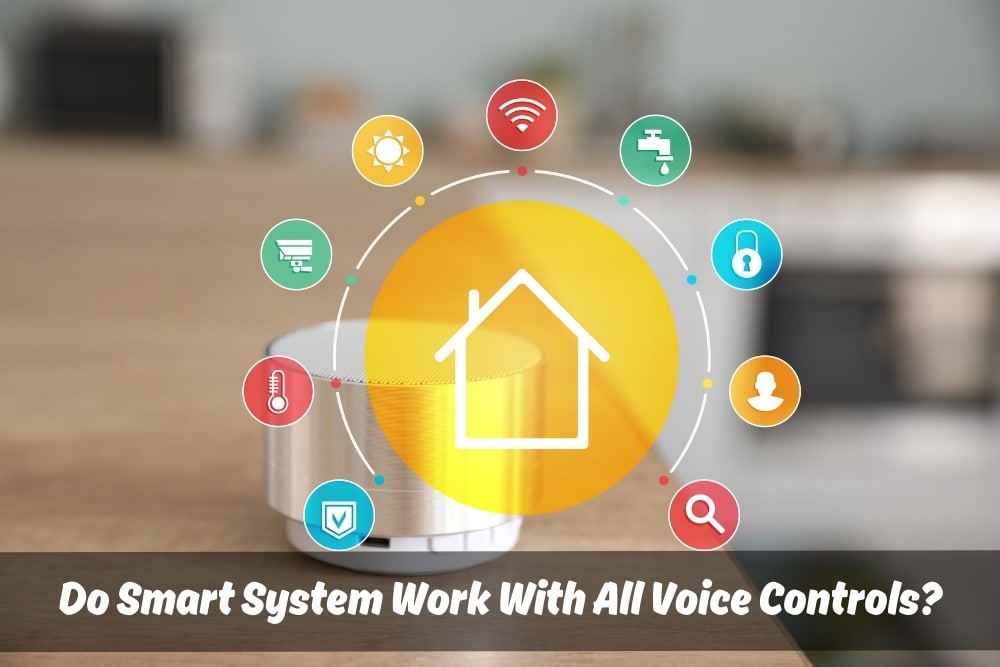When you have a smart system, your busy life can be lifted and you will now have time to relax. Imagine, you strut into your living room from a tiring work, kick off your shoes, and voila! The lights are dim, your favourite tunes start playing, and the thermostat adjusts to your perfect temperature – all without lifting a finger (except for the shoe-kicking, of course). This is the dream of an automated home, but a crucial question lurks: can all voice assistants chat with all these devices?
The answer, my friend, is a bit of a compatibility maze. Pitch into this information to determine whether your system fits the bill.
What are voice controls and smart systems?
Imagine an AI assistant as your super-powered genie. You speak your wish (turn on the lights!), and it magically happens. Popular options include Amazon Alexa, Google Assistant, and Apple’s Siri. These clever systems use fancy speech recognition to understand your commands and translate them into actions for your automatic home devices.
Smart system: The device network
Now, picture a network of cool gadgets – lights, thermostats, cameras, appliances, you name it! These interconnected devices are your automated home system. They can be controlled remotely using your phone or through automation (think lights turning on at sunset). In addition, these smart homes can also be more sustainable. Imagine you can control your energy and water usage—this is not just cost savings but also reduces your environmental footprint.
Here’s the catch: these assistants and this kind of system need to speak the same language to work together. Just like you wouldn’t understand someone speaking Mandarin if you only know English, an assistant won’t understand a device if they’re not compatible.
Can any voice assistant control any smart system?
While the idea of universal control is tempting, different AI assistants and artificial systems often operate on their own communication protocols. Think of it as having different apps – they all work differently! Voice assistant developers also tend to favour integrating with specific brands or platforms to ensure smooth communication. This creates a comfortable ecosystem where everything works together seamlessly. A deeper understanding of artificial home policies can help explore how these systems work.
Which voice assistants work with which smart systems?
Before diving headfirst into these gadgets, it’s crucial to check their compatibility with your chosen assistant. Check out this cheat sheet:
- Alexa: The social butterfly of the bunch, Alexa works with a vast array of devices, from Philips Hue lights to Nest thermostats and Samsung appliances.
- Google assistant: A whiz kid with Google products like Nest devices and Chromecast, Google Assistant also integrates well with other brands like Philips and TP-Link.
- Siri: Siri prefers staying within the Apple family, working best with HomeKit-enabled devices. However, it can connect with some non-Apple brands too.
Some systems boast universal harmony. It’s important to understand the compatibility between specific home devices and popular voice control platforms.

Prioritise features and functionalities
Choosing the right and compatible ones is crucial to creating a harmonious home experience. Before this symphony of automation can play, you need to ensure all the instruments are compatible and play the same tune. Here are some key tips to help you choose the perfect tech team for your home:
Focus on the features and functionalities that matter most to you.
- Voice Assistant Features: Do you crave a digital assistant with superior natural language processing, like Google Assistant? Or maybe the vast library of Alexa is more appealing? You need to consider how you’ll interact with your system.
- Smart System Functionalities: Do you prioritize energy efficiency with automated thermostats? Or maybe security cameras are a must-have? List the features you can’t live without and choose systems that deliver them.
But beyond functionality, how secure is your smart home? While these devices offer undeniable convenience, security vulnerabilities can leave your home exposed. For peace of mind and a truly secure ecosystem, experts can recommend secure devices and configure your system with robust security measures, ensuring your house remains a haven, not a liability.
Does brand matter when picking smart systems?
In some ways, brand compatibility is important, but it shouldn’t be the only factor. Here are some extra things to consider:
- Building your dream team: Each AI assistant has its own “squad” of compatible devices. When making your choice, consider the brands you trust and the features you crave.
- Features first: Don’t get lost in the brand name maze! Look for offers of the functionalities you find most valuable.
- Future-proofing: Consider how long particularly are likely to be supported. Established players with a focus on development might be a wise long-term choice.
Alternatives to voice control for smart system
Since you know the necessary attributes and qualities you need, always remember that it’s not perfect for every situation. Here are some patterns when alternative control methods might be better:
- Party time: In a noisy environment, your audio commands might get lost in the music (unless you’re belting out karaoke!).
- Privacy matters: Some users prefer to avoid voice control due to privacy concerns.
- Complex tasks: For intricate tasks involving multiple devices or precise settings, using a phone app might be faster and more efficient.
These alternatives offer different levels of control and can be used alongside commands to create a truly customized intelligent home experience.

Finding your home harmony
Building this kind of home filled with convenience and automation is all about planning. By understanding compatibility and exploring your options, you can create a network of devices that speak the same language as your chosen voice assistant, catering to your specific needs. However, navigating the world of automated home devices and ensuring seamless integration can be a complex task. It is also highly advisable to consider contacting an expert smart home technician and configuration. Although doing it yourself can be fun and less expensive, professional advice can give you more intricate information and safety – not just for the installation but for the choice of your setup. These people can help you design a mode that works flawlessly, whether you prioritise voice control or prefer alternative methods for a truly customized home experience.
Yakka Electrical Services: Smart home experts
Feeling overwhelmed by the world of technology? We understand. But Don’t worry—Yakka Electrical Services is here to assist and guide you! Our team of specialists can assess your needs, recommend compatible voice assistants and digital systems, and ensure a seamless and user-friendly home experience, giving you a relaxed and comfortable life. Contact Yakka Electrical Services today and unlock the full potential of your talking home!


